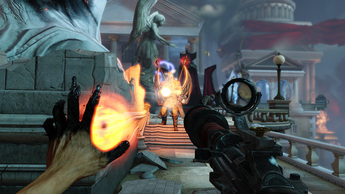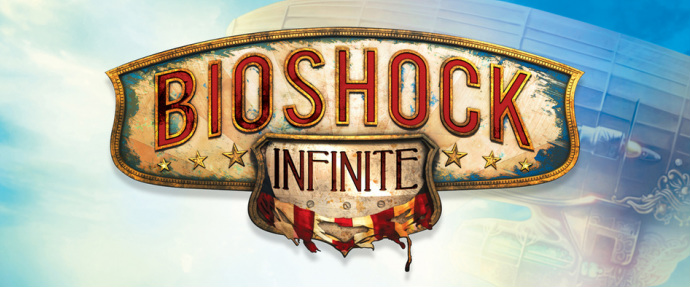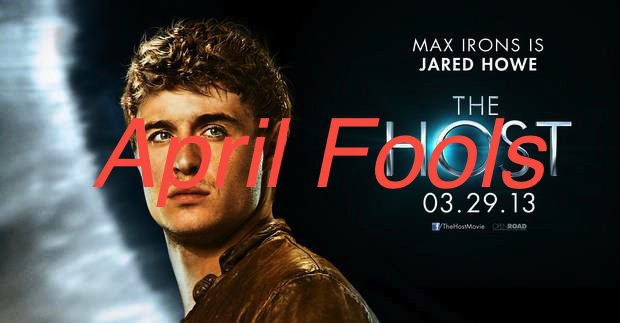|
TheCroakingFrog's staff has been working overtime to prepare for the summer's cinematic onslaught. (Read: there's still nothing worthwhile to watch…we've been trying to think of one miserable article to write, and this is the best we could come up with. And no, Iron Man 3 does not count as "worthwhile." Robert Downey Jr. is simultaneously the best and most annoying part of the series, which should tell you everything you need to know about the films.)
3 Comments
 The late Roger Ebert famously claimed that video games could never be art. Given the critic's own definition—that true art must be largely attributable to one author, and must match the quality of our greatest poets, filmmakers, and painters—it's worthless to argue with him. But I doubt he's ever played anything quite like Bioshock Infinite. Intensely imaginative and tantalizingly mysterious, Infinite's first hour has the same mesmerizing quality of your most puzzling dreams. Developer Irrational Games leaves small strands of logic here and there, each immensely enticing but always elusive. Your brain will cling to what it can while these in-game images last, before they (quite literally) dissolve before your eyes. Players control compulsive-gambler-with-cookie-cutter-good-looks Booker DeWitt, who's been given simple, ominous instructions: Bring us the girl; wipe away the debt. He's taken to a lighthouse amidst heavy rain and a bit of amused, cryptic banter between his escorts. After climbing the lighthouse steps past a grisly execution scene, he finds a contraption much like The Great Glass Elevator (Charlie and The Chocolate Factory). The pod whisks him up and up and up as the thunder booms and the blackness grows, until all at once he bursts through to a bright, gorgeous city in the clouds. Briefly relieved, Booker soon feels a tinge of uneasiness. Even as they welcome Booker to the city, the cheerful citizens mention a guiding figure called The Prophet. Booker quickly discovers his task will be far, far more complicated than he first believed.  Though the dystopian framework may be familiar, Irrational knows how to add plenty of less familiar narrative turns, with snatches of wartime history, some inter-dimensional playfulness, and villains, who, like Mad Men, we can never dismiss as entirely horrible. Expertly paced, Infinite reveals just enough, just frequently enough, to keep gamers intrigued, without falling in love with its own story to the detriment of gameplay (attention: Metal Gear). But Infinite is also stubborn. The game's proud commitment to the single-player experience deserves praise—too many modern games have thrown out narrative in favor of online mayhem—but its fierce dependence on familiar game mechanics becomes frustrating. At its mechanical core, Infinite is pure First-Person Shooter, which begins as a nuisance and becomes an outright shame. Irrational pairs nearly every dreamlike, exploratory sequence with a routine, gunslinging encounter. Within the game's final two hours, I'd be lucky to go two minutes without firing off another dozen rounds. It took years for science fiction filmmakers to move past martial arts after The Matrix (1999). With video games? Too often, Halo (2001) still provides the sci-fi gaming template.  Thankfully, Irrational augments the tired gun-based combat with supernatural, element-based powers called "Vigors." (I apologize to my non-gaming readers for that sentence.) While Booker carries traditional weapons with his right hand, his left hand shimmers and pulses with elements like fire, electricity, or even a swarm of murderous crows. Instead of simply firing off rounds, players can emit flames or electrical bolts, (think of it as a newer, trendier version of casting spells), set Vigor-based traps, and best of all, combine the two (ex: summon a flock of crows to fly at an enemy, then light the flock on fire for an even deadlier assault). My favorite Vigor—the Bucking Bronco—allows Booker to throw onrushing enemies ten feet into the air with a flick of his hand. Late in the game, I remember spinning around to see a dozen baddies charging straight for me; I cast the lot up in the air, sent a flock of crows, and dove behind nearby cover. Five minutes later, my heart finally stopped racing. These moments alone almost single-handedly excuse the constant gunplay.  Still, Infinite's true charm lies in its engrossing world and intricate plotting. You'll learn to proceed slowly, deliberately, and thoroughly, as old audio journals and short film reels lie strewn about Columbia (the name of the city in the clouds). Like reading a great novel, Infinite rewards conscientiousness and thoughtful backtracking; the most careful players might just solve a few of Columbia's mysteries before Irrational truly solves them for you. Best of all, the story's meticulous plot culminates in a worthy, satisfying conclusion. Without hyperbole, Infinite's spellbinding finale is the best video game denouement I've experienced in at least five years. Even so, as I sat—20 minutes later—still thinking over the game's fantastic conclusion, I remembered Roger Ebert's claim. Regardless of whether this is art, I thought, surely this has something in common with a great film. I certainly had a strong emotional response. But as I considered further, Ebert's assertion began to make more sense to me. Infinite may have a phenomenal story, but only within the context of its fellow video games. A month ago I lambasted Looper (a 2012 sci-fi film) for its irresponsible treatment of time travel. Infinite commits many of the same crimes, but I realized it didn't bother me nearly as much. Why was this? Video games have two unique qualities largely absent from film. First, developers always design games so that the players will enjoy playing them. Of course, most summer blockbusters have this same goal, but in general, a film does not have to be enjoyable. A movie might be excruciating to watch, but because it evokes a profound emotional response, we judge the experience worthwhile. No one would choose to continue playing a 20-hour game she didn't like. Second, games can be beaten, while films cannot (one of Ebert's main points). If we want to judge films and video games based on their makers' intentions (apart from their intention to make money), then it makes sense that we would judge the two mediums differently. Infinite's riskiest, most admirable choice was to try to succeed both as a game and as an interactive film. Without question, the game succeeds at the former task. But at the latter? If I force myself to apply the same critical rigor I do with film to Infinite's plot, I find myself much less enthusiastic. At the same time, it's probably unfair to apply these same standards. I loved the game for what it was, particularly in comparison to other games. Is Bioshock Infinite a work of art? I'm not sure I can say. Is it diligently crafted, unbelievably fun, and one of the best games of the last several years? I say yes. And within the world of video games, that's a far more important question. There's a lousy time of year for everything. In the world of sports, it's summer. For weddings? January. For relationships in general? Thanksgiving and Valentine's Day. And as TheCroakingFrog knows only too well, spring is rotten for movies. Critics agree: Spring Breakers is the best wide-release film now in theaters. God help us all.
So what's a film critic to do in times of cinematic famine? The only thing he or she can: create a click-friendly "Top 10" post about something Pixar-related. Everybody wins! Dear HBO,
Today, I was going to write a review for your Game of Thrones' third season premiere. I had a page of careful notes. I'd triple-checked how to spell "Daenerys." I prepared commentary on Tyrion's dismissive-satire-as-subtle-insecurity, something that only HBO could have executed so well. But instead, I simply have a question, HBO. When did you become so afraid? Your shows consistently push television's boundaries; your distribution models cower behind spreadsheets and cautious executives. I know I'm not the first person to complain about this. I'm aware of the noble (but failed) campaign from last summer. I've seen your crony's cleverly condescending response. But it's time to admit what this is really about: fear. You won't offer standalone content at a single price per month, because the cable companies might get mad. They might lose a few subscribers who finally realize paying for 113 separate stations is certifiably insane. Perhaps they'll scale back their (lousy and frankly, irrelevant) advertising for your phenomenal shows. No more lions and tigers and cable budgets. Oh my! I'm not a cable subscriber, but I've watched every Game of Thrones episode to date. How? I borrowed HBO GO passwords, downloaded illegal copies from friends, found shady online streams, and squinted through one episode on YouTube uploaded from a guy's iPhone 3GS. (Speaking of, what did happen in the first half of episode 5…the guy's buddy was sort of standing in the way.) I actually saw season 3's first episode at a friend's house, legally. It turns out he's the only person under 30 in all of Santa Barbara who pays for cable. If you're tracking with me, that's approximately 20,000 people (TV-watchers under 30) who love and watch Game of Thrones in my city, and one paying customer. Enjoy that $14.95. I understand your CEO, Richard Plepler, recently murmured something about a possible broadband provider package deal. I also understand that the House of Representatives pledged to compromise during campaign season. I appreciate your kind, disingenuous words. Weren't you the network that dared to air The Sopranos, a series confident enough to star a bitter, vindictive wise guy? Didn't you bring television to a new, literary, novelistic level by green-lighting The Wire? Wasn't it your network that created TV-Western-for-the-21st-century Deadwood? Didn't you make the world's most innovative, admired psychiatric drama, In Treatment? Aren't you the network currently responsible for Girls, a show that risks grappling with the realities of a younger, poorer, frustrated generation of misfits? The HBO of 2000 pioneered a television revolution, trusting that viewers would prefer thoughtful, difficult stories to the formulaic procedurals of years past. It was risky, but you were right. Let me know when that HBO returns. Let me know when you, the cowardly HBO of 2013, want to embrace the future of creative media, to take a short-term monetary risk in return for creating millions of new admiring, income-earning, technologically-savvy fans. Or play it safe like Borders and Blockbuster Video. It's up to you. Ben would like to thank Alan Sepinwall for his book, The Revolution was Televised, for its descriptions and observations on many of HBO's shows, which helped inform his research for this letter. Wow. That was fast. In a few short months, TheCroakingFrog has really taken off. I never thought we would start advertising this quickly, but due to the large volume of offers, we’ve decided to move forward with some truly innovative plans. I’d like to thank Open Road Films for signing up to be our first sponsor. Check out their trailer for The Host here. We’re really excited about this, and we think you will be too.
~Ben, author of TheCroakingFrog Plans and Pricing 1. The Lily Pad — $100 TheCroakingFrog will accept $100 cash for one (1) positive review of your film, television series, or video game. We can also negotiate the timing of publication. 2. The Pond — $500 Most Popular! Everything from “The Lily Pad” Plus TheCroakingFrog will change its banner image and site title for one full week. You will also receive a complimentary “mini promotional blurb” and link to the film trailer. See our current advertising for The Host now. 3. The Full Croak — $1,000 Everything from “The Lily Pad” and “The Pond” Plus A nasty review disparaging one rival film, television series, or video game. We can include personal attacks on individual actors and/or directors for an additional fee. 4. Enterprise Pricing Don’t have time for creativity? Need to promote a piece of garbage cinema and destroy all of your innovative, worthwhile competitors? Just click “Contact” above and we can discuss a variety of schemes at scalable pricing. |
TheCroakingFrog
|





 RSS Feed
RSS Feed
